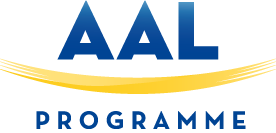Session E3
| Session E3 | ||
| Session title: | Ethics of data mining and automatic decision making | |
| Session responsible: | ||
| Session chair: | Dr. Andreas Spahn, Eindhoven University of Technology, NL | |
| Date and time: | 26th September 2012, 9.00 – 10.30 h | |
| Session partners: |
| |
| Room: | Jupiter | |
| Session Content | ||
| Rationale Activities of data mining and automatic decision making are central to AAL and provide a minefield of ethical issues. These ethical issues are still hardly explored and are different from issues such as privacy and confidentiality that are associated with AAL activities of observing people and compiling personal information. New types of analysis and solutions must be developed. The underlying key problem is that whenever we use information, combine it with other information, or use it to make a decision, we must take the information out of its original context. Journalists do this when they publish an interview, we all do this when we retell a story we heard. Making information useful and relevant in a different context is always a creative process of “re-framing”, which is one of the strengths of human intelligence. We are all aware that the process of “re-framing” can be misused. Politicians often complain that journalists have taken their words out of their context, still in the end they must often accept that they did say what is published. The problem is not simply a matter of misuse and bad intentions. The problem is that transfer of information is never a mere repetition of words and bits of information. Whenever we transfer information the information gets some new meaning. To find out whether this re-framing was reliable, more is needed than the mere control whether the original words and bits of information have been correctly copied and transferred. The criterion is not identicalness but reliability. As long as re-telling and re-combining existing information is done by human beings, people can go beyond the mere words and argue, discuss and assess whether the transfer of information happened in a reliable or unreliable way. When information is transferred and combined by intelligent machines, it is easy to do data-mining and combine information from a large variety of contexts. It is not so evident how such automatic and massive information processing can be linked to some process of reliability check. How can machines be sure that the information used is not “taken out of context” in the bad meaning of the word, and has constructed a picture of the situation which does not do justice to the people involved. The situation requires even more caution when machines use the combined information as the basis for strong conclusions and decisions about a person. The session on “ethics of data mining and automatic decision making” will explore what this all means for the context of AAL. How can we identify those issues of (un)reliable information transfer? Is it possible to develop AAL systems that appropriately address these issues? Four introductions will launch the discussion. A panel discussion will address what all this can mean for the participants. Preliminary program | ||
| 05 min | Introduction by the chairman | |
| 20 min | General background of ethics in data mining and automatic decision making Prof. Guido van Steendam, Leuven, Belgium | |
| 20 min | Lefgal context of data mining: the European Data Protection Regulation Rocco Panetta, Rome, Italy | |
| 10 min | Mylife – a case study of the ethics of user involvement in field trials across Europe Nada Savitch et al, Exeter, UK | |
| 10 min | NETCARITY – a case study on how to store and control data in your own house Ilse Bierhoff, Eindhoven, The Netherlands | |
| 25 min | Discussion | |
